UCMJ Article 99: Misbehavior Before the Enemy
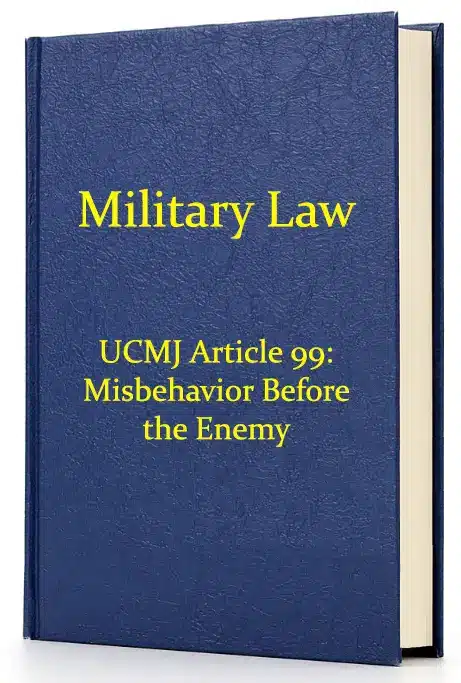
For Article 99, enemy refers to any organized oppositional forces in a time of war or any hostile opposing body with whom our forces may be engaged. The term enemy includes civilians as well as members of opposing military organizations.
UCMJ Article 98: Misconduct as a Prisoner
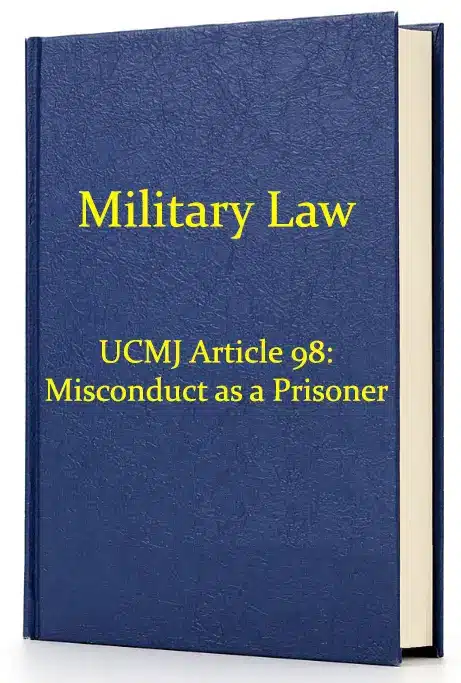
“Acting without authority to the detriment of another for the purpose for securing favorable treatment” and “maltreating prisoners while in a position of authority” must have been committed during a time of war and while the accused was in the hands of the enemy; however, there are additional qualifiers for each charge.
UCMJ Article 97: Unlawful detention
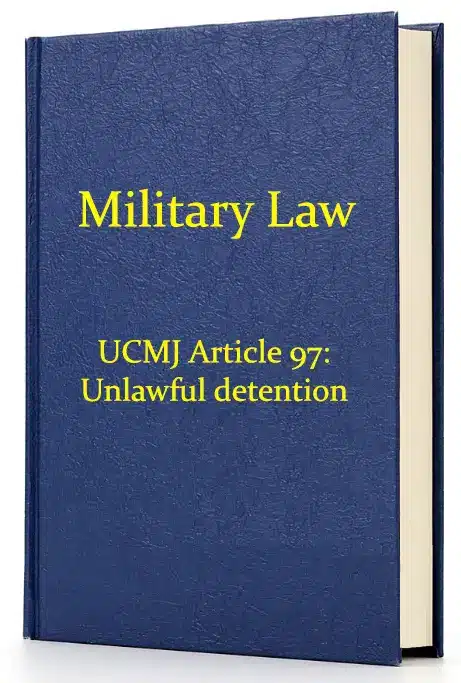
Article 97 prohibits improper acts by those authorized by the UCMJ to arrest, apprehend, or confine others. This article does not apply to private acts of false imprisonment nor the restraint of another’s movements by someone not authorized by the UCMJ.
UCMJ Article 96: Release of prisoner without authority; drinking with prisoner
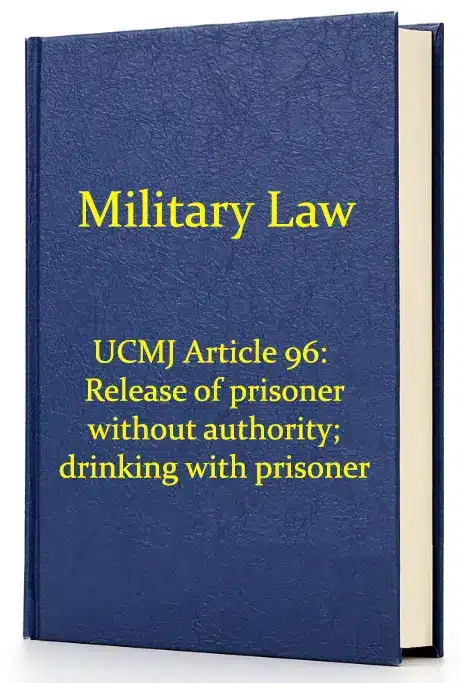
A prisoner is anyone who is in confinement, custody, or under sentence of a court martial. The release of the prisoner can only occur if the removal of restraints was conducted by the accused, not the prisoner. Normally, the lowest authority permitted to order the release of a prisoner is that of the commander who convened the prisoner’s court martial or the officer exercising general court martial jurisdiction over the prisoner.
UCMJ Article 95a: Disrespect toward sentinel or lookout
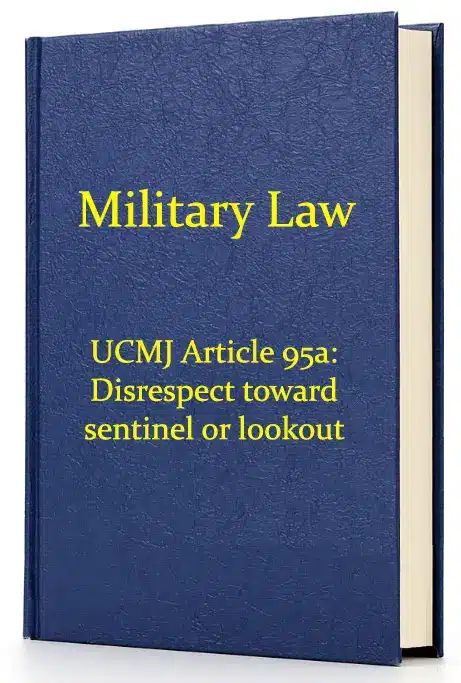
Disrespectful behavior detracts from the respect due to the sentinel or lookout. It may consist of acts or language, however, expressed, and it is irrelevant if the accused referred to the sentinel or lookout while on duty or as a private individual. Disrespect by words may be conveyed by abusive epithets or another contemptuous, derogatory, or denunciatory language.
UCMJ Article 95: Offenses by sentinel or lookout
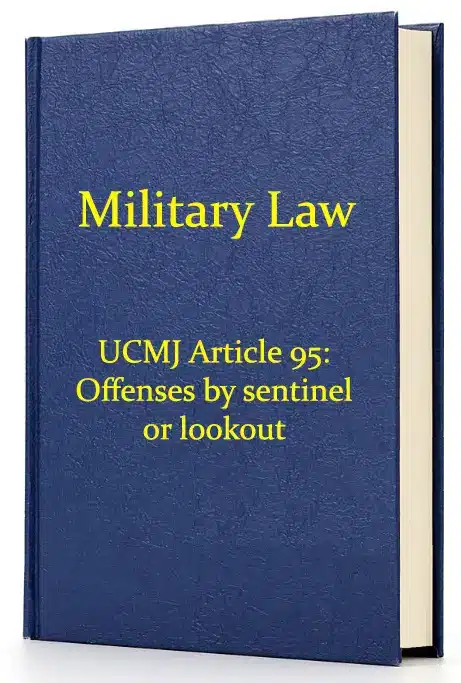
The behaviors specified in Article 95, drunk on the post, asleep on the post, or leaving the post before being relieved, do not apply to those who are not assigned as a sentinel or lookout, nor does it apply to anyone whose duties do not require constant alertness and attentiveness.
UCMJ Article 94: Mutiny or Sedition
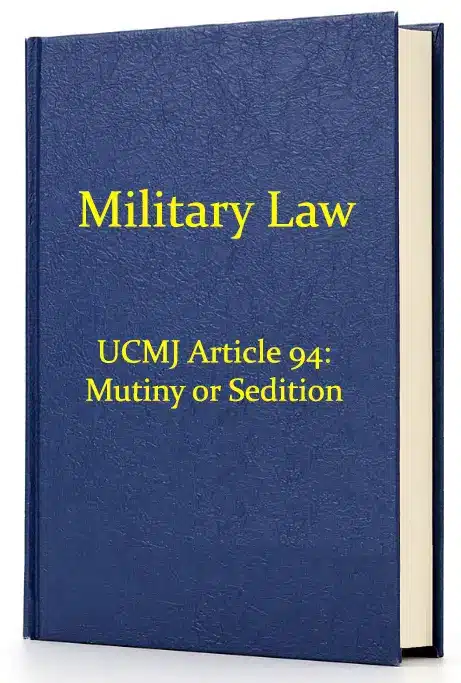
There are two types of mutiny defined in Article 94 but both require an attempt to “usurp or override military authority”.
UCMJ Article 93a: Prohibited Activities with Military Recruit or Trainee by Person in Position of Special Trust

The purpose of Article 93a is to protect those recruits or trainees who may be vulnerable to authority figures in a training environment. While military law does allow trainers, recruiters, instructors, and officers a degree of control over those under their supervision, their relationship and behavior must remain appropriate.
UCMJ Article 93: Cruelty and Maltreatment
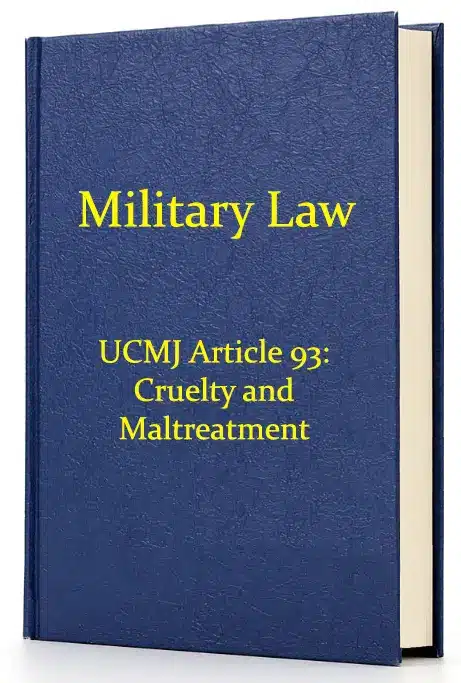
The term “any person subject to his orders” protects those not only under the direct or immediate command of the accused but also all persons who, because of some duty, are required to obey the lawful orders of the accused. Those required to follow the legal orders may or may not be subject to the UCMJ.
UCMJ Article 92: Failure to Obey Order or Regulation
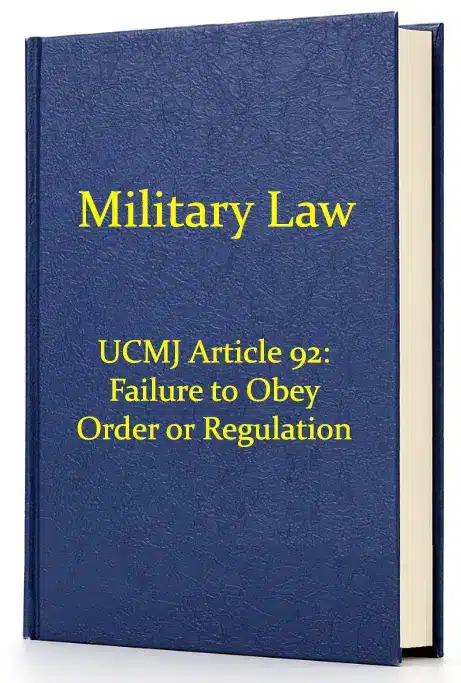
To be prosecuted for an Article 92 violation of or failure to obey a lawful general order or regulation, the order must have been given by someone with the authority to do so, and the order retained validity after a change of command. The order or regulation must have been lawful and enforceable.
